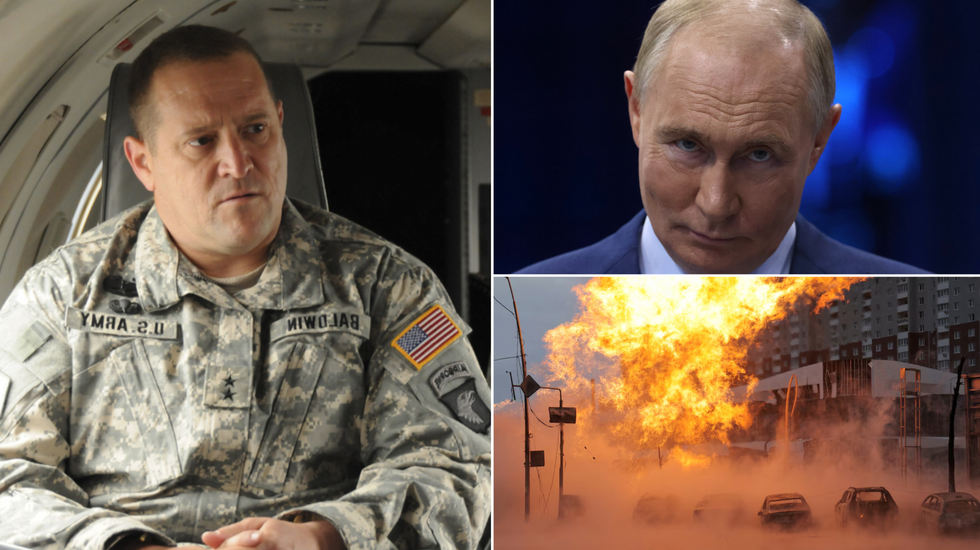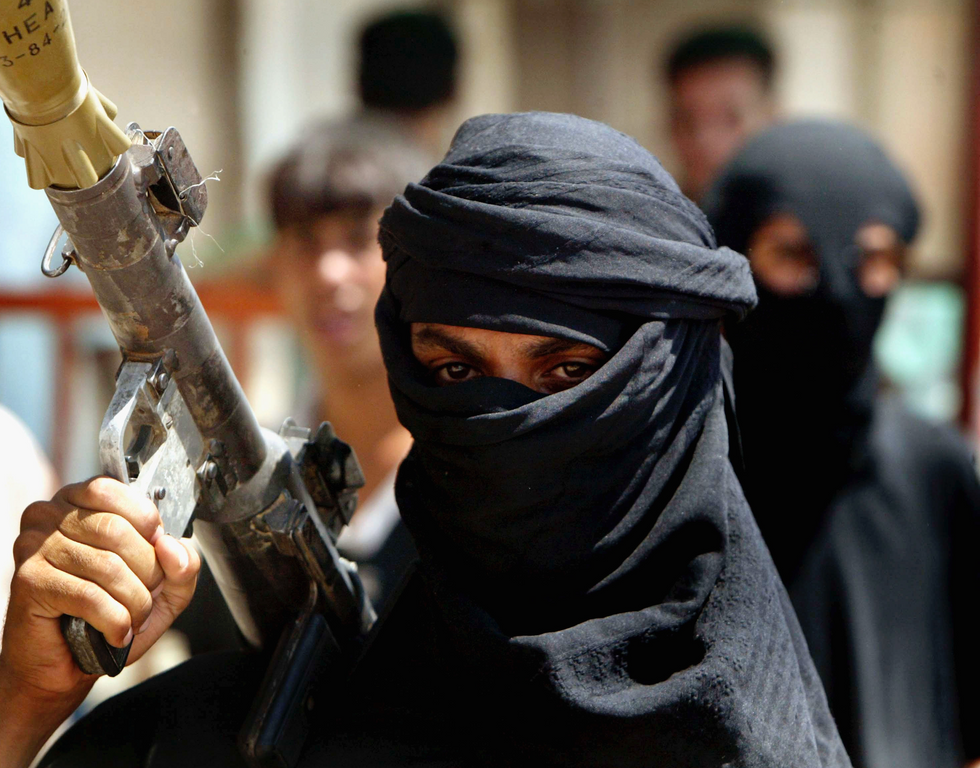Andy Burnham praises Keir Starmer's leadership on the Ukraine crisis, and says …
GB News
Major General David Baldwin's grim reality check comes as America's support for Ukraine wavers
Don't Miss
Most Read
Trending on GB News
A top US general has branded Vladimir Putin's invasion of Ukraine "wildly illegal and unprecedented", drawing comparisons to World War 2 in a bid to shore up American support at a time when it is sharply divided along party lines in America.
The rallying cry follows the chaotic White House meeting that saw President Donald Trump and his veep JD Vance accuse Volodymyr Zelensky of being ungrateful and risking World War Three over what they view as his refusal to compromise on the war in Ukraine.
Who started it seems to depend on which way you vote. Still, everyone can agree that the diplomatic exchange marked a decisive break from previous administrations and heralded a new era of conservatism.
The neocons of the past, with their fondness for interventionism, have been superseded by isolationists who view the world in terms of competing spheres of power.
This transactional approach has created uncomfortable bedfellows, with the new right seeming to respect strongmen as long as they don't step on America's toes.
At the same time, allies, with all their talk of defending the post-1945 world order, are spurned as "free-loaders" to America's largesse, as Fox News host turned US defence secretary Pete Hegseth recently put in a leaked message on an encrypted chat group.

Vladimir Putin's invasion of Ukraine is comparable to the events that led to World War 2, says Major General David Baldwin
Getty Images
What gave birth to this new way of thinking?
There are many theories as to how this new strain of conservatism took seed in America, but Major General David Baldwin draws a relatively straight line from the War on Terror.
When US forces invaded Afghanistan in response to Al-Qaeda's attack on New York's Twin Towers on September 11, 2001, they envisioned a quick campaign to overthrow the Taliban that had sheltered Al-Qaeda and its leader Osama bin Laden and bring the terrorists to justice.
However, this objective soon expanded into an invasion of Iraq in 2003 and the subsequent toppling of Saddam Hussein's regime.
US forces would fritter away trillions of dollars over the next twenty years on nation-building and fighting insurgencies across the region only to give birth to a global jihadist movement.
Given this tainted legacy, Baldwin, who commanded units at all levels during his 40-year service in the US military, gets why American voters have lost their appetite for funding foreign wars.
"The clumsy interventionism of the 2000s and the 2010s led to lives and treasure being expended on a war without end," the US veteran told GB News.
However, Americans have too short a memory, he says, adding that you have to go further back to draw a historical comparison to the current moment.
"There's nothing like it since World War II, where a nation invades the sovereign territory of another nation, which is wildly illegal and just unprecedented in the modern era. Putin's invasion of Ukraine is totally different to what we faced with the War on Terror."
LATEST MEMBERSHIP DEVELOPMENTS

US forces frittered away trillions of dollars on nation-building and fighting insurgencies across the Middle East
Getty Images
Baldwin is sympathetic to his compatriots who are "starting to call it into question how we spend our money" but warns against "throwing the baby out with the bathwater" as the US must continue to be the world leader in promoting peace and prosperity globally, adding: "Part of that promotion of peace involves sometimes kicking somebody in the teeth."
Our interview ends on an optimistic note about America's commitment to the world order it helped shape.
"There is gonna be a lot of rhetoric in the next couple of years about all of this stuff but what I tell my friends in Ukraine is that the American people remain committed to our role in the world, despite what we've done recently at the ballot box and what some of our politicians are saying."








